- Austausch & Vernetzung
- Wissen & Lernen
- Advocacy
- Unsere Themen
Die durch das Corona-Virus hervorgerufene Infektion und Erkrankung hat sich über die ganze Welt verbreitet, weshalb die Weltgesundheitsorganisation eine Pandemie ausgerufen hat. Während die medizinische Versorgung bereits in den europäischen Ländern an die Kapazitätsgrenzen stösst, wird sie im globalen Süden bei ähnlich steigenden Zahlen unmöglich sein. In diesem Dossier bieten wir Hintergrundinformationen zur Situation in ressourcenschwachen Ländern und politische Analysen zu den Folgen für die globale Gesundheit. Und wir informieren wie unsere Mitgliedorganisationen und deren Partnerorganisationen von der Situation betroffen sind und damit umgehen.
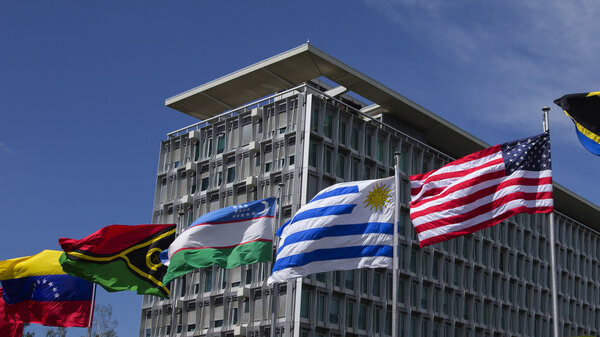
Ein Gastkommentar von Ilona Kickbusch
"Im Zusammenhang mit den Diskussionen der Weltgesundheitsorganisation (WHO) um ein Pandemieabkommen reden Kritiker von einer «WHO-Diktatur». Davon kann keine Rede sein, die Mitgliedländer sind denn auch weit davon entfernt, eine Einigung zu erzielen. Die Fehlinformationen zu den derzeitigen Verhandlungen am Sitz der Weltgesundheitsorganisation (WHO) in Genf nehmen zu. Besonders laut sind jene Stimmen, die einen drohenden Souveränitätsverlust der Nationalstaaten und eine «WHO-Diktatur» am nahen Horizont herbeireden. Sie wissen offenbar wenig über den Standardablauf internationaler Verhandlungen – oder wollen das gar nicht wissen."
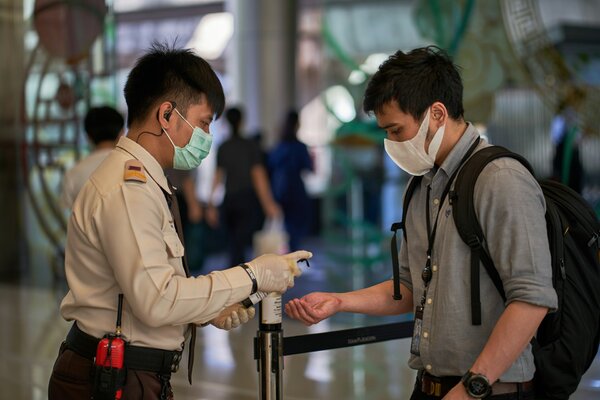
"The latest draft of the pandemic agreement, while deferring many operational issues, keeps equity hopes alive in many aspects – including by cementing in-principle agreements on a pathogen access and benefit-sharing (PABS) system, a global supply chain and logistics network and geographically diverse “capacities and institutions” for research and development. The streamlined 23-page draft was sent to World Health Organization (WHO) member states on Tuesday night ahead of the final meeting of the intergovernmental negotiations body (INB) on 29 April."
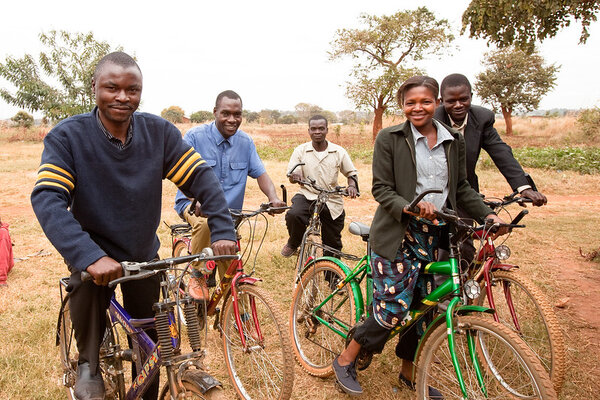
In Wakiso einem Distrikt in Uganda herrschte eine grosse Impfzögerlichkeit während der COVID-19 Pandemie. Trotz Bemühungen des Gesundheitsministeriums gab es keine Fortschritte. Im Oktober 2022 wurde jedoch ein neues Kapitel aufgeschlagen, als sich eine beeindruckende Allianz zusammenfand. Die Makerere University School of Public Health, die Rockefeller Foundation und Amref Health Africa schlossen sich mit dem Gesundheitsministerium und der Kommunalverwaltung des Bezirks Wakiso zusammen. Ihr Auftrag war klar: Die Village Health Teams (VHTs) sollten geschult und gestärkt werden. Das Ergebnis war beeindruckend und ein Beispiel für die Solidarität der Gemeinschaft: 1.000 geschulte VHTs konnten durch unermüdlichen Einsatz der durch Fehlinformationen geschürten Impfmüdigkeit begegnen und das Vertrauen der Bevölkerung gewinnen. Eine Welle der Veränderung wurde ausgelöst.
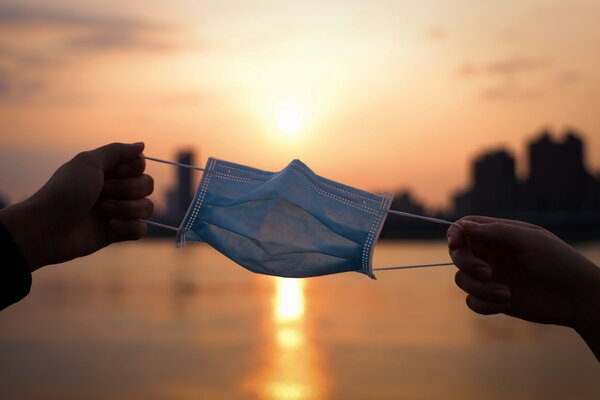
Weiterhin keine Einigung über einen erleichterten Zugang zu Informationen über Krankheitserreger und dem daraus resultierenden Nutzen (Pathogen Access and Benefits, PABS)
Der Austausch von Erregerproben und genetischen Sequenzdaten (GSD) sowie eine gerechte Verteilung lebensrettender Gegenmassnahmen (MCM) im Falle einer Pandemie, wie Diagnostika, Medikamente und Impfstoffe sind entscheidend für die globale Pandemieprävention, Vorsorge und Reaktion. Diese Themen, die gemeinsam als "Pathogen Access and Benefit Sharing (PABS)" bekannt sind, bleiben jedoch ein zentraler Streitpunkt bei den laufenden Verhandlungen über das Pandemieabkommen. Die Autoren betonen die Notwendigkeit von verbindlichen finanziellen Beiträgen und anderen Vorteilen für ein solches System, um eine gerechte Verteilung von Medikamenten und Impfstoffen während einer Pandemie zu gewährleisten. Sie schlagen Verbesserungen für einen aktuellen Verhandlungstext vor und betonen die Bedeutung einer starken Einbindung von Entwicklungsländern in die Verhandlungen. Die Einrichtung eines sog. PABS-Fonds sollte nicht nur zur Unterstützung von PABS verwendet werden, sondern auch zur Finanzierung der Lücke bei der rechtzeitigen Verteilung von MCM an LMICs, da dies angesichts der Ungerechtigkeit, die sie während COVID-19 erfahren haben, ein wichtiger Teil des von den Regierungen der LMICs erwarteten Vorteilsausgleichs ist. Ausserdem sollte in die Verpflichtungen aufgenommen werden, dass diejenigen, die zu kommerziellen Zwecken Zugang zu biologischen Ressourcen und GSD erhalten, während einer Pandemie je nach Bedarf weitere Beiträge an LMICs leisten sollten. Die Autoren warnen, dass ein schwaches, unwirksames PABS so gut ist wie ein nicht vorhandenes PABS. Bis zur Vollversammlung im Mai sind es nur noch wenige Wochen. Ein Scheitern der Verhandlungen wäre nach all den großen Versprechungen eine Katastrophe.
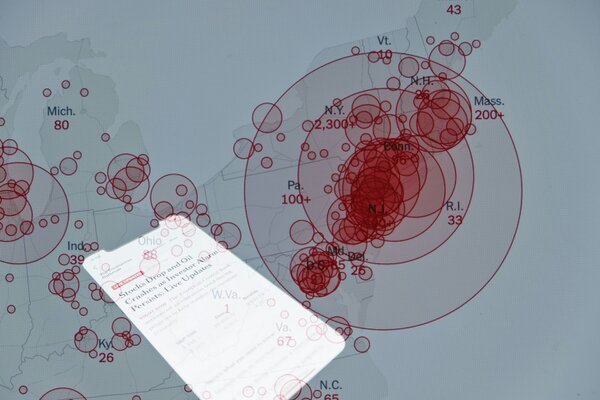
"The fractious pandemic agreement talks – supposed to end with an agreement on Thursday (28 March) – have limped into extra time, with World Health Organization (WHO) member states resolving to hold an additional intergovernmental negotiating body (INB) meeting from 29 April to 10 May. The World Health Assembly (WHA), which begins on 27 May, is supposed to adopt the agreement, intended to be a global guide on how to prevent, prepare for, and respond to, pandemics. (...) At the briefing at the end of Thursday’s talks, which started almost four hours later than scheduled, INB co-chair Roland Driece said that “there is no champagne”. “We had long intensive discussions, but we have not succeeded in concluding this meeting,” added Driece."

Interview mit Martin Leschhorn Strebel, Geschäftsführer Medicus Mundi Schweiz
"Um sich gegen globale Gesundheitskrisen besser zu wappnen, arbeitet die Weltgesundheitsorganisation WHO an einem globalen Pandemievertrag. Massnahmengegner aus der Corona-Zeit befürchten den Verlust der Unabhängigkeit. Taucht ein neuer bösartiger Erreger auf, ist eine weitere Pandemie durchaus möglich. Schon während der Corona-Pandemie machte sich die Weltgesundheitsorganisation WHO daran, einen weltweiten Pandemievertrag zu erarbeiten. Inzwischen liegt nach sieben Verhandlungsrunden ein Textentwurf vor, über den im Mai 2024 an der 77. Weltgesundheitsversammlung der WHO in Genf abgestimmt werden soll."
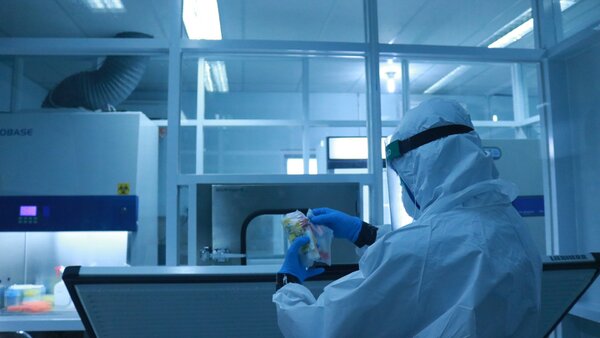
Next week, countries are going to be engaged in another two-week marathon to hash out the details of the pandemic agreement.
"The pandemic agreement negotiations are entering the home stretch, but NGOs and global health observers are still not happy with the latest draft of the agreement. The revised draft, dated March 7, was circulated to partners over the weekend. It comes after a two-week marathon session of the Intergovernmental Negotiating Body, or INB, that ended March 1, and one week ahead of its scheduled final session that starts on March 18, where member states are expected to engage in text-based negotiations for nine days. According to observers and NGOs, the text remains weak on compliance, and text on the hot-button issue of pathogen access and benefit sharing still does not equate to equal benefits for low- and middle-income countries."
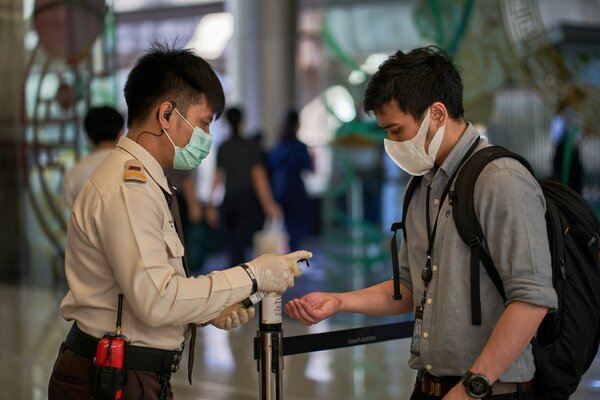
Far from making amends, a handful of powerful countries are sabotaging the best chance to translate the lessons from the COVID-19 pandemic into legally binding commitments that will protect us all.
"The Intergovernmental Negotiating Body (INB), which is tasked under WHO with drawing up an international instrument on pandemic prevention, preparedness, and response, will sit for the 9th and final time from March 18–29. In the 2 years since it first met, hundreds of hours and unknown costs have been spent, but the political impetus has died. The convention is now at a critical juncture: the final text for countries to ratify is due to be presented at the World Health Assembly in May. With only limited days of negotiation left and a long way to go to secure a meaningful agreement, it is now or never for a treaty that can make the world a safer place."

ABS emerges as a cornerstone of potential outcome. By Priti Patnaik & Nishant Sirohi
"There is a distinct shift in the mood. Despite continuing divergences on key issues from technology transfer, financing, to access and benefit sharing, some countries are beginning to see a small possibility of concluding negotiations for a new Pandemic Instrument. However, the near-impossibility of reaching consensus on complex, technical matters within such a short time period, looms large in the hallways of the World Health Organization. With the number of remaining formal negotiating days ahead of May 2024 dwindling to single digits, WHO member states, nevertheless, continue to be keen on concluding talks to reach agreement in addition to finalizing amendments to the International Health Regulations. This emerging optimism could suggest two possibilities: a more likely one that could result in a watered-down agreement to meet the deadline, essentially a face-saving exercise; a second scenario - albeit somewhat rose-tinted, is that they would actually be able to put together a reasonable set of commitments that broadly meets the needs of most countries."
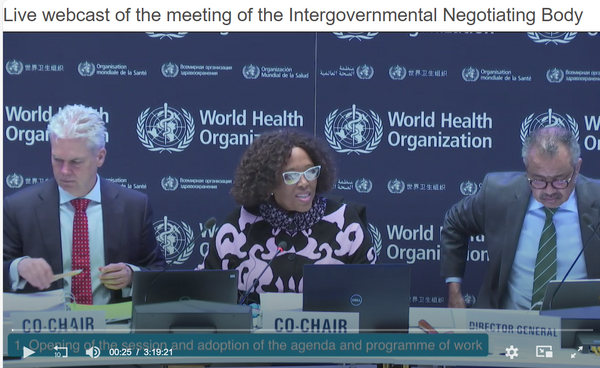
Strong Push for Access and Benefits Sharing Mechanism. By Priti Patnaik & Nishant Sirohi
"Scores of developing countries pulled their weight in a bid to push for equity provisions in a new Pandemic Agreement at the opening of the latest meeting of the Intergovernmental Negotiating Body (INB), set up to establish a new Pandemic Agreement. Despite strong intentions, it looks increasingly difficult that objectives to ensure equity in pandemic preparedness and response, will translate into any serious binding obligations, given limited political will and time. WHO member states are meeting for a two-week marathon meeting where they continue to discuss a proposal for a negotiating text put together by the Bureau of the INB, that to an extent reflects some of the deliberations conducted in smaller groups on a number of different key provisions."
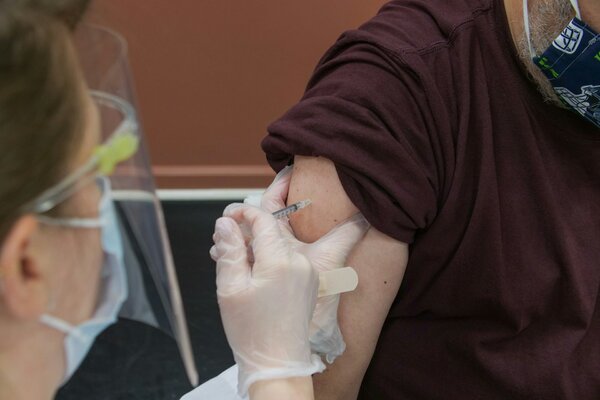
"Health Policy Watch has obtained portions of the latest draft of the pandemic agreement that member states will negotiate over at the eighth intergovernmental negotiating body (INB) starting on Monday, 19 February. At the time of publishing, only member states had access to the draft, although a number of civil society organisations recognised as stakeholders have requested a draft from the World Health Organization (WHO) Bureau that is overseeing the negotiations for some time."
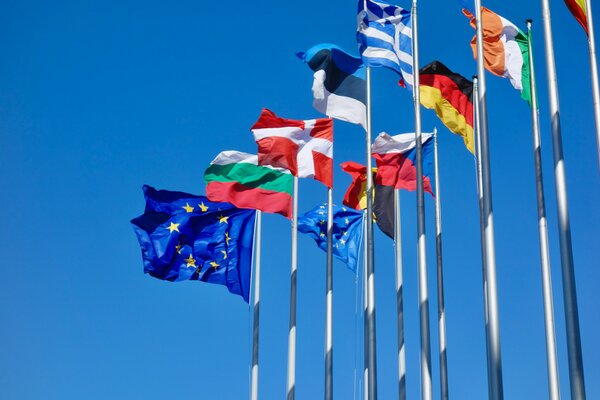
"More than 40 former heads of state and leading global health advocates have urged world leaders not to waste a unique opportunity to save millions of lives as negotiations stall on a new global pandemic accord. In an open letter, published four years after the World Health Organization declared covid-19 a global health emergency, the 40 influential figures warned that the world’s leaders were looking increasingly unlikely to agree on a new, legally binding agreement intended to prevent and prepare for a future pandemic."
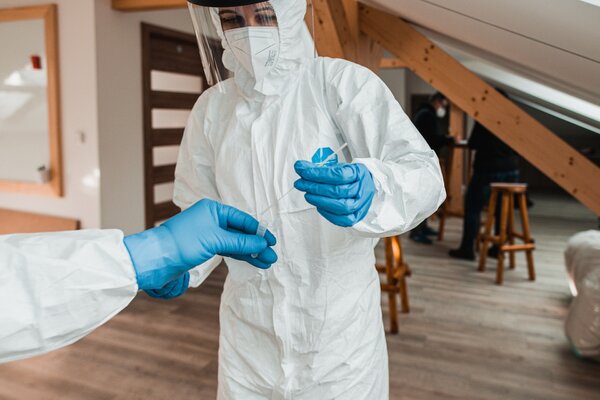
Eine weltweite Initiative zur Erarbeitung eines Regelwerks für den Umgang mit zukünftigen Pandemien droht zu scheitern, da die Erinnerungen an COVID-19 verblassen und die politische Aufmerksamkeit auf andere Themen gerichtet ist.
Das Pandemie-Abkommen, das derzeit über die Weltgesundheitsorganisation (WHO) verhandelt wird, soll die Vorbereitung auf eine globale Gesundheitskrise verbessern und eine Wiederholung der ungleichen Verteilung von Impfstoffen und Medikamenten während der COVID-19-Pandemie verhindern. Seit zwei Jahren verhandeln die Länder über die Regeln, aber es gibt immer noch wenig Fortschritte und Einigung in den meisten Bereichen des Abkommens. Die Verhandlungen stehen unter Zeitdruck, da die Frist im Mai 2024 abläuft, die anstehenden Probleme und die Tatsache, dass nur noch zwei offizielle Verhandlungsrunden stattfinden, sind jedoch alarmierend. Ein weiteres Problem ist die Frage der Gleichberechtigung, die während der COVID-19-Pandemie vernachlässigt wurde. Die Länder im globlen Süden bestehen darauf, dass das Abkommen konkrete Maßnahmen zur Gleichberechtigung beinhalten muss, um sicherzustellen, dass sie fair behandelt werden. Ein zentraler Streitpunkt ist der Mechanismus für den Zugang zu und die Teilhabe an den Vorteilen der gemeinsamen Nutzung von Informationen und Ressourcen.
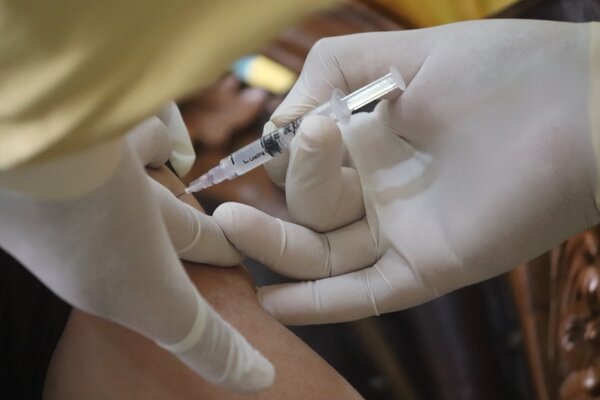
Interview mit Nora Kronig
Neue Zürcher Zeitung (NZZ) "Soll die Schweiz dem umstrittenen Pandemiepakt der WHO beitreten? Muss das Parlament den Bundesrat bremsen wie zuvor beim Uno-Migrationspakt? Die Schweizer Botschafterin nimmt Stellung."
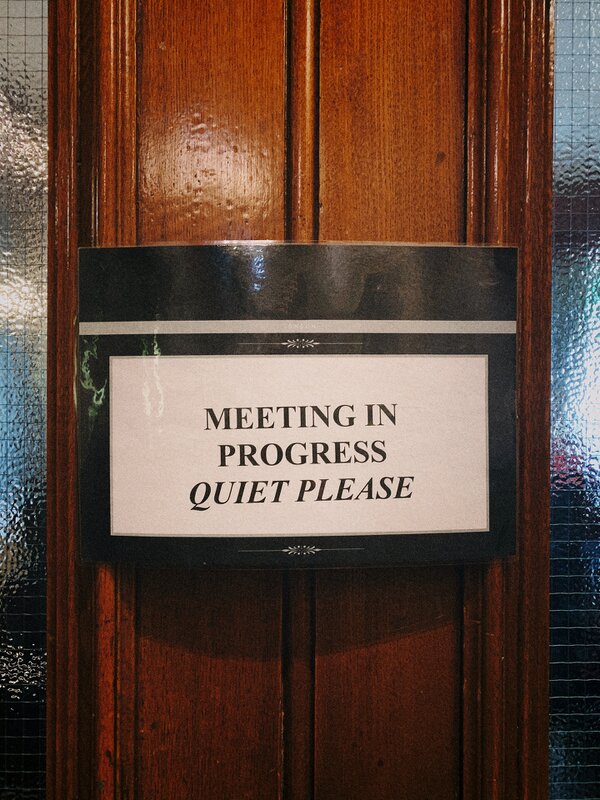
"Delegations of a group of developing countries were taken by utter surprise this week, when it became known that one of their top negotiators from the influential Africa Group, has been abruptly asked to pack up and head home in the midst of crucial negotiations in global health. This development is striking given the decisive role played by a prominent Namibian diplomat who has been known for taking strong positions on equity related provisions in on-going global health negotiations to reform the governance of health emergencies. This transpired just as Geneva is gearing up for a crucial week-long meeting where the Intergovernmental Negotiating Body on the Pandemic Agreement will meet at WHO during 4-6 December, immediately followed by the Working Group set up to amend the IHR during 7-8 December."
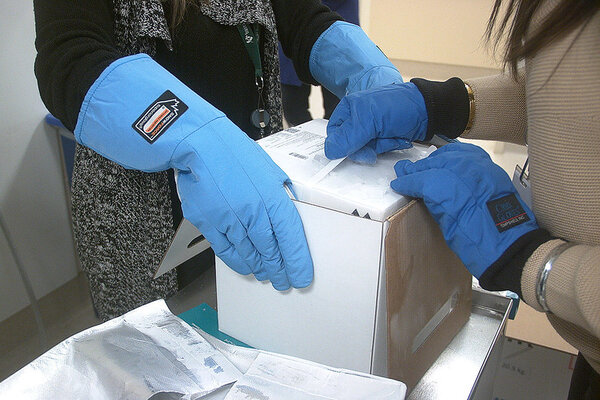
"Africa could start producing its own cutting-edge COVID-19 vaccines within a year via an mRNA technology transfer hub that is being set up in South Africa, the World Health Organization (WHO) announced on Monday. But the speed at which the new hub may be able to swing into full-scale vaccine production depends on whether pharmaceutical companies with proven mRNA vaccines will commit to supporting the initiative, according to WHO Chief Scientist Soumya Swaminathan."
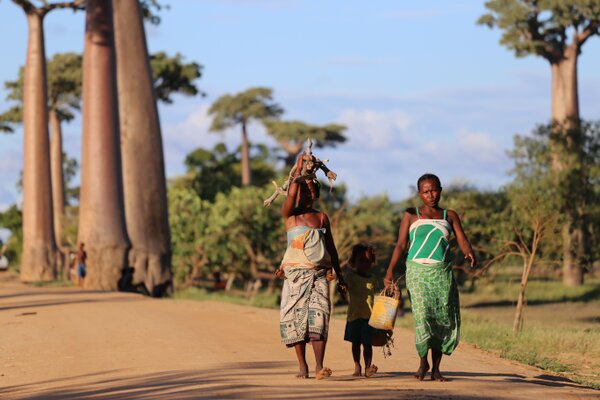
The Lancet "With the number of COVID-19 cases decreasing across the continent, it is time to reflect on the first months of the pandemic in Africa. Munyaradzi Makoni reports. In February 2020, the first case of COVID-19 was recorded in Africa. Borders were closed, confirmed cases quarantined, and curfews imposed early, which helped countries to slow down the spread of the virus. A slow rise in cases compared with other parts of the world resulted, highlighting Africa's weak health systems, fragile infrastructure, inadequate availability of trained personnel, and poor access to medical supplies and equipment." (Photo by 2Photo Pots on Unsplash)
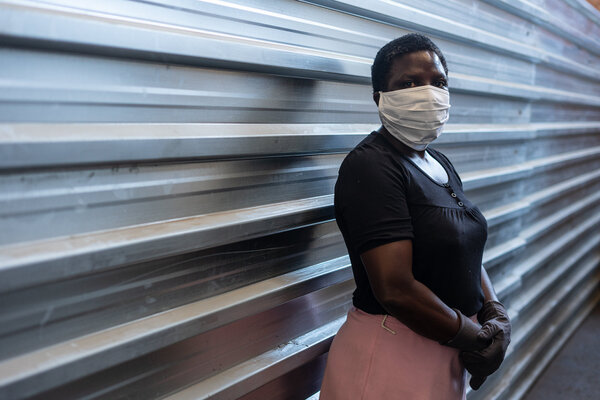
Devex "Drastic measures to contain the spread of COVID-19, such as strict lockdowns, are not sustainable on many parts of the African continent because of crowded living conditions and the need to keep economies afloat. That’s why an effective vaccine is one of the best chances African countries have to return to normalcy, experts said this week. “A COVID vaccine would allow member states to return to a fully functional economy and society,” said Dr. John Nkengasong, director of the Africa Centres for Disease Control and Prevention, during a virtual two-day conference focused on the role the continent hopes to play in the development, production, and distribution of future coronavirus vaccines." (Photo: KB Mpofu / International Labour Organization ILO/flickr, CC BY-NC-ND 2.0)
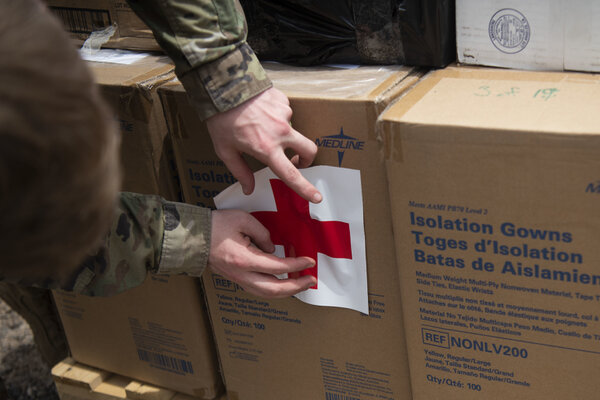
naturemedicine "Given the current trends in incidence and underlying healthcare systems vulnerabilities, Africa could become the next epicenter of the COVID-19 pandemic. As the pandemic transitions to more widespread community transmission, how can the lessons learned thus far be consolidated to effectively curb the spread of COVID-19 while minimizing social disruption and negative humanitarian and economic consequences?" (Photo: USAFRICOM/flickr, CC BY 2.0)
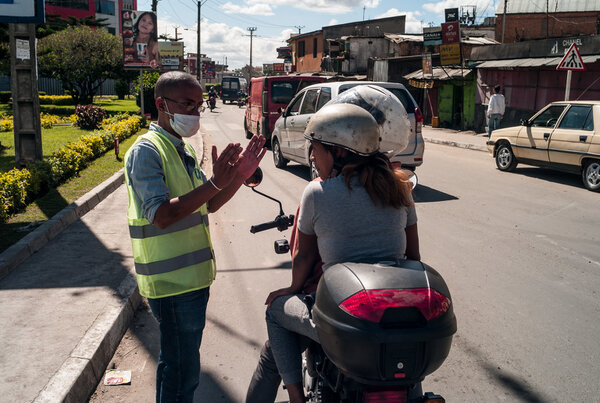
Health Policy Watch "African countries are lifting lockdowns even as COVID-19 cases across the continent reached a grim new milestone, topping 200,000 cases. The pandemic took only 19 days to reach 200,000 cases in Africa, while it took 98 days to reach the first 100,000 cases. Yet carefully easing lockdown orders in Africa may be the right move according to former United States CDC director Tom Frieden, who is currently president and chief executive officer of Resolve to Save Lives, an Vital Strategies initiative." (Photo: World Bank Photo Collection/flickr, CC BY-NC-ND 2.0)
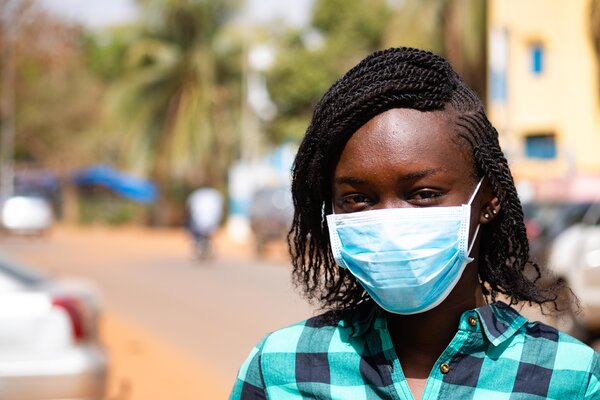
The Lancet "Despite over 100 000 confirmed cases and infections in every country, the passage of COVID-19 through the African continent remains somewhat enigmatic. High numbers of deaths were expected in the region due to fragile health systems, lack of access to preventive measures, barriers to testing, and potentially vulnerable populations. But, according to WHO, Africa is the least affected region globally, with 1·5% of the world's reported COVID-19 cases and 0·1% of the world's deaths." (Photo: World Bank Photo Collection/flickr, CC BY-NC-ND 2.0)
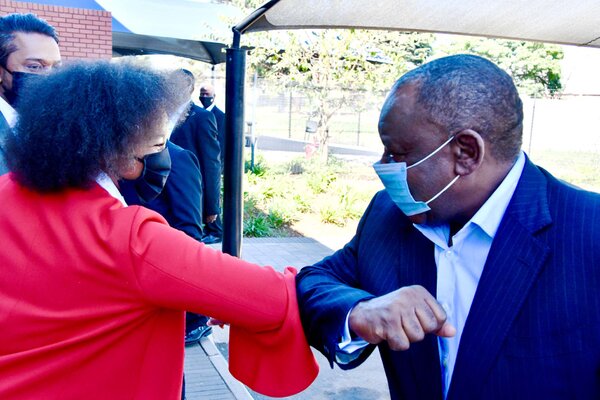
‘The kind of camaraderie and willingness to solve this is unprecedented.’
The New Humanitarian "No country escapes coronavirus unscathed, but South Africa seems to have done better than most – despite dire predictions that African countries are a “ticking time bomb” of COVID-19 devastation. President Cyril Ramaphosa has won international praise for a generally sure-footed response, and, after years of bad news, the country is experiencing a tentative feel-good bloom over its ability to pull together." (Photo: GovernmentZA/flickr, CC BY-ND 2.0)
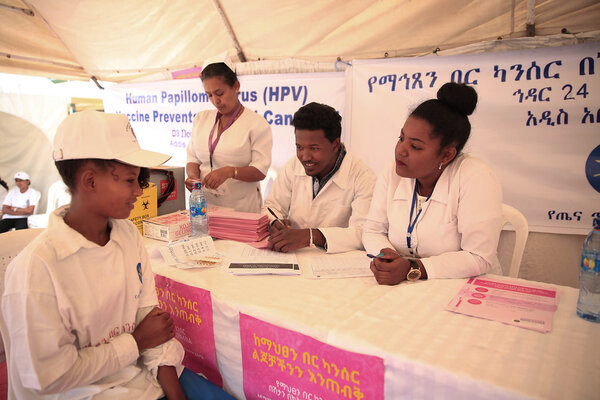
Health Policy Watch "Low and middle-income countries urgently need affordable personal protective equipment, diagnostics, treatments and vaccines to ward off even bigger waves of COVID-19 infection and mortality – and global production capacity is failing to ensure timely supply even of those products now on the market. Now, more than ever, producers in poor countries need to be integrated into the health products ecosystem – at national, regional and global level – something that is good for public health, local economic development – and global public health security." (Photo: UNICEF Ethiopia/flickr, CC BY-NC-ND 2.0)
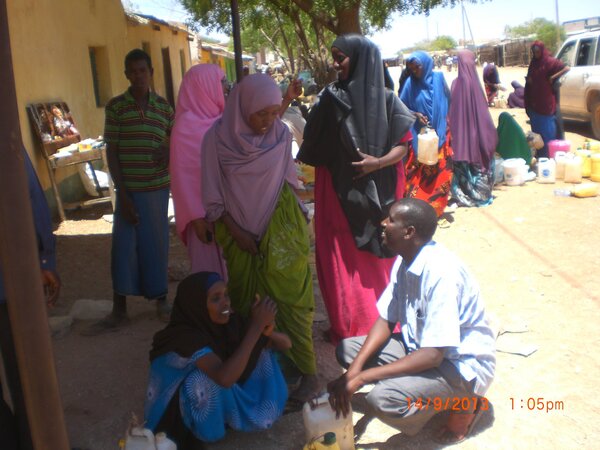
Imperial College London "COVID-19 has the potential to cause disruptions to health services in different ways; through the health system becoming overwhelmed with COVID-19 patients, through the intervention used to slow transmission of COVID-19 inhibiting access to preventative interventions and services, and through supplies of medicine being interrupted. We aim to quantify the extent to which such disruptions in services for HIV, TB and malaria in high burden low- and middle-income countries could lead to additional loss of life." (Photo: CDC Global/flickr, CC BY 2.0)
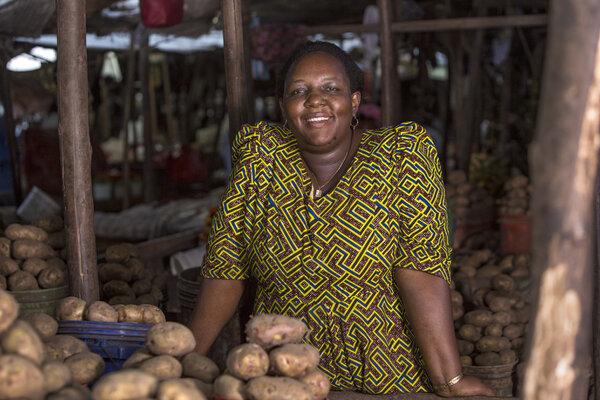
London School of Hygiene & Tropical Medicine (LSHTM) “Since the lockdown in Zimbabwe was mandated beginning on March 30th, I take my daily walks to get out of the confines of my house. As the weeks progress, these walks have become…busier. Cars everywhere, people everywhere. My local potato and tomato vendors started reappearing at street corners, attempting to sell their produce. At one point I asked one of the vendors if the lockdown had ended, and I had somehow missed that announcement. No, the lockdown hadn't ended but the need to feed their families and earn some income had intensified. As one vendor gently mentioned ‘kusiri kufa ndekupi’ which loosely translates to ‘we are all going to die anyways’." – Constancia Mavodza." (Photo: UN Women/flickr, CC BY-NC-ND 2.0)
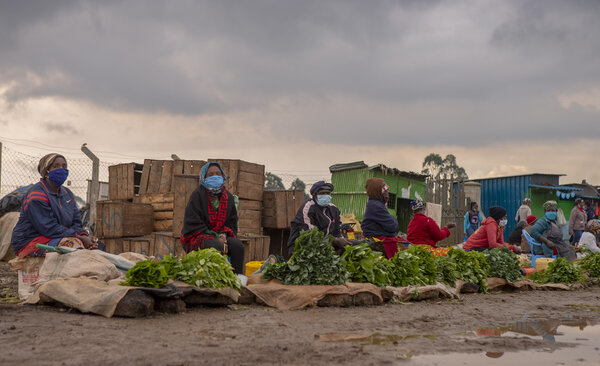
Le Temps "Les pays africains sont dans l’ensemble peu touchés par le Covid-19. La jeunesse de la population et le climat freinent sans doute la transmission du coronavirus mais l’évolution de la pandémie est incertaine, d’autant que le confinement de la population est intenable." (Photo: Social Distancing in the Market/World Bank Photo Collection/flickr, CC BY-NC-ND 2.0)
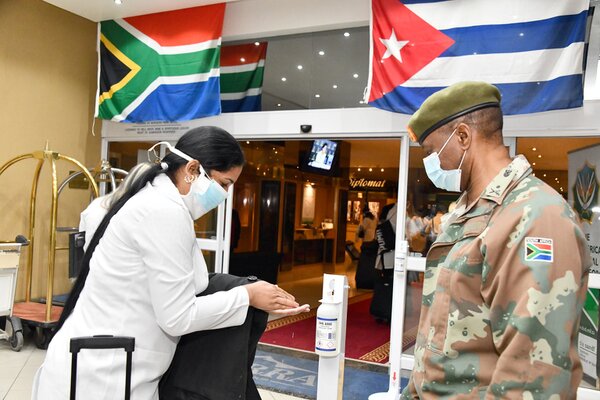
The ICU capacity that is critical to managing covid-19 complications is severely limited in much of the region, warn Edgar Asiimwe and Saraswati Kache
British Medical Journal (bmj) "The covid-19 pandemic has undoubtedly challenged our previously held assumptions about global disease epidemiology. Classic public health teaching promulgates the theory of a prevailing epidemiologic transition—one in which the burden of disease morphs from predominantly infectious causes to non-communicable causes as countries industrialize. That theory has now been turned on its head as public health campaigns in industrialized countries promote basic hygiene, while restrictive lockdowns upend regular life. For many, these developments feel like regression to a hitherto forgotten era, with industrialized nations now living the contemporary experience of many in developing countries." (Photo: 217 Cuban Health Specialists arriving in South Africa to curb the spread of COVID-19/GovernmentZA/flickr, CC BY-ND 2.0)
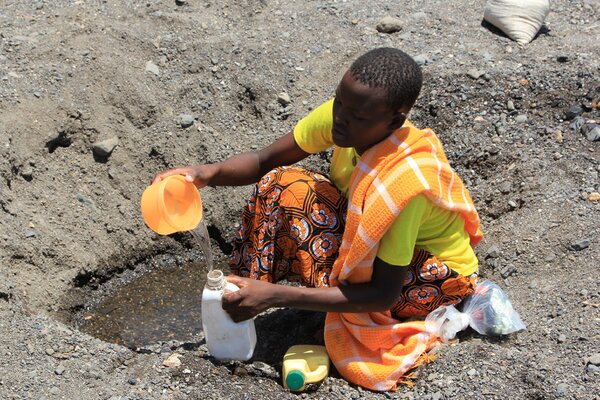
Interview with Eric Comte, GHF Director
Heidi.News "The Geneva Health Forum, created in 2006 in Geneva, was forced to postpone its eighth annual conference, from March to 16-18 November due to the COVID-19 pandemic. But that has not prevented the Forum’s leadership, including GHF Director, Dr Eric Comte, from responding to the unprecedented challenge created by the crisis. From a small and modest gathering of booths and stands, the Geneva Health Forum has grown into an international event with a strong array of scientific sessions. Geneva Solutions interviewed Comte to hear about the role GHF is playing in the present emergency, and his views gleaned from years in epidemic management." (Photo: DFID - UK Department for International Development/flickr, CC BY 2.0)
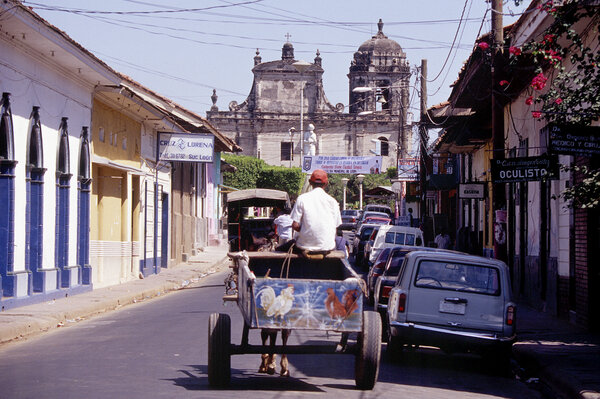
Med in Switzerland #18 April 2020
MMS Vor allem europäische Tourist*innen und danach Reisende aus den USA haben das Coronavirus in diese Region gebracht, wo sich die Epidemie Ende März 2020 noch weitgehend im Anfangsstadium befindet. Schwache und teilprivatisierte Gesundheitssysteme, in meist hochverschuldeten Ländern mit einem Grossteil der Bevölkerung ohne formelle Anstellung und mit schwachen Sozialversicherungssystemen, lassen für die kommenden Monate Böses ahnen. Von Beat Schmid, Koordinator von AMCA in Zentralamerika. (Leon Nicaragua. Foto: Massimo Pedrazzini)
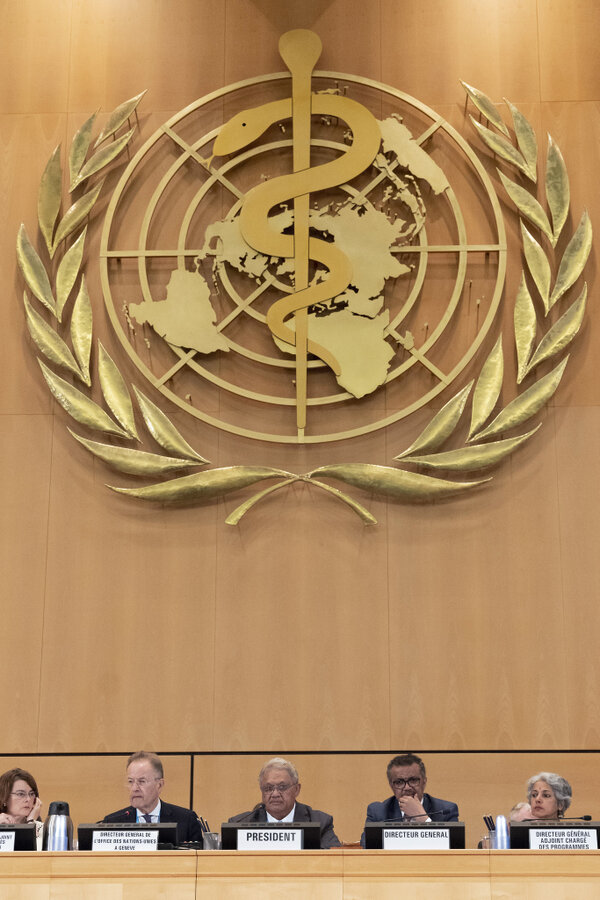
World Health Organisation (WHO) Brazzaville/ Cairo, 7 April 2020 – The number of confirmed COVID-19 cases in Africa has risen to more than 10 000 and caused more than 500 deaths. While the virus was slow to reach the continent compared to other parts of the world, infection has grown exponentially in recent weeks and continues to spread. Reaching the continent through travellers returning from hotspots in Asia, Europe and the United States, Africa’s first COVID-19 case was recorded in Egypt on 14 February. Since then a total of 52 countries have reported cases. Initially, mainly confined to capital cities, a significant number of countries in Africa are now reporting cases in multiple provinces. (Photo: UN Geneva/flickr, CC BY-NC-ND 2.0)
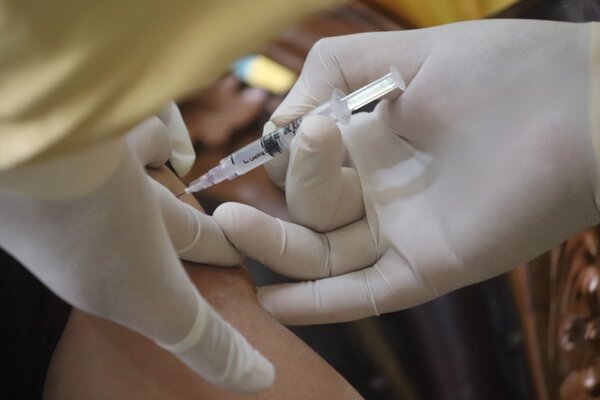
"On 14 June, we marked the birth anniversary of Ernesto Che Guevara, whose vision guided the development of the Cuban healthcare system. Today, healthcare in Cuba remains rooted in the ideals of social and revolutionary medicine fought for by Che. They are an inspiration in the current times of pandemic. Members of the Cuban international health brigades that went to support the pandemic response in 39 countries have already paid tribute to this vision. The upcoming Cuban vaccines will certainly do the same, as they have the potential to significantly boost vaccination drives in low and middle income countries. We bring an in-depth story on the vaccine research and development process in Cuba, as a tribute to the public health capacities that made it possible."

"This year’s World Health Assembly agenda was jam packed with virtual conversations on how to end the pandemic and prevent future health crises. Still, different health priorities were discussed with over 30 resolutions adopted on topics ranging from local production of medicines to ending violence against children to oral health. Sitting on the terrace of the Graduate Institute, global health expert and co-director of the Global Health Centre professor Suerie Moon shares her thoughts with Geneva Solutions on some of the fundamental discussions that took place during the WHA and what should be done moving forward to address the current Covid-19 pandemic and future health crises."
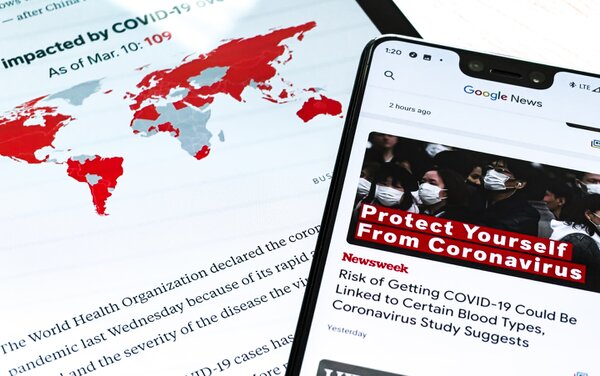
Third World Network (TWN) Info Service on Health Issues
Third World Network (TWN) "The new draft decision on a so-called “pandemic treaty” proposes a special session of the World Health Assembly (WHA) in November to take a decision on the establishment of an intergovernmental process to negotiate a new agreement. The new draft decision dated 25 May, which is published as a WHA conference paper (A74/A/Conf./7) is the result of several rounds of informal talks over the last ten days, with strong push back from the United States, Brazil and Russia to the initial draft."

People’s Health Dispatch is a fortnightly bulletin published by Peoples Dispatch, focusing on the politics of health and people’s initiatives for the right to health, including actions organised by workers
"One year after the COVID-19 pandemic started spreading havoc worldwide, health ministers are once again gathering online for the 74th World Health Assembly (WHA74). WHA74 is being held in the midst of an erratic global vaccine rollout, in which rich countries have elbowed their way to most of the available doses, owned by big pharmaceutical companies. Advised by pharma advocates such as Bill Gates, they ignored their own early calls for global solidarity and relied on bilateral agreements with patent holders, allowing a flawed intellectual property system to compromise access for most of the world, and pushed the expected date of achieving wanted vaccination rates globally to 2024."
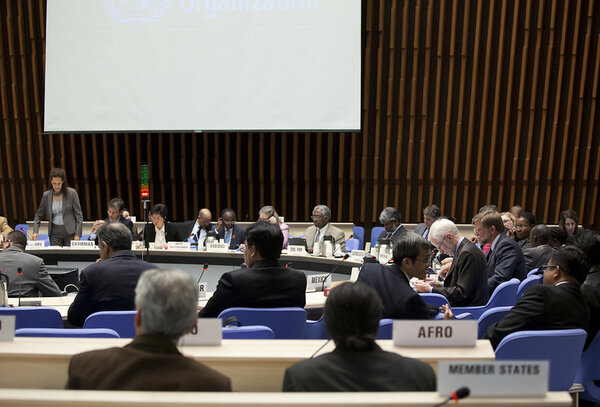
Ein Gastbeitrag von Sara (Meg) Davis vom Global Health Centre, des Graduate Institutes in Genf
Der Bericht des von der WHO eingesetzten unabhängigen Gremiums zur Überprüfung des globalen Managements der COVID-19 Pandemie und zur Ausarbeitung von Empfehlungen zur Bewältigung der Pandemie ist enttäuschend, so fasst es Sara (Meg) Davis zusammen. Der Bericht benennt zwar zentrale Probleme und globale Ungleichheiten, doch die Empfehlungen werden den grossen Herausforderungen nicht gerecht. So drängt das Gremium eine Milliarde Impfdosen in Länder mit niedrigem und mittleren Einkommen zu spenden, doch angesichts des Bedarfs von 10 Milliarden Impfdosen, um das Virus einzudämmen, gleicht dies eher einem Almosen, denn einer Impfgerechtigkeit. Brutale Menschenrechtsverletzungen im Zusammenhang mit COVID-19 werden kaum benannt, ebensowenig wie die chinesische Geheimhaltung von Gesundheitsdaten. Auffallend bleibt die Abneigung gegen sensible politische Realitäten, die sich wie ein roter Faden durch den Bericht zieht.
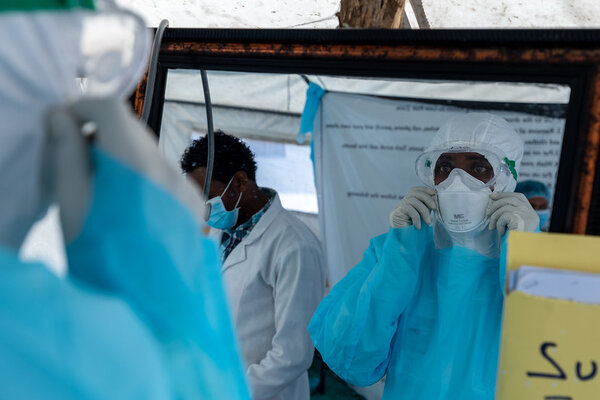
Im vergangenen Jahr wurde eine noch nie dagewesene Anzahl von Mitarbeiter*innen im Gesundheitswesen aufgrund der COVID-19 Pandemie angegriffen, misshandelt, entführt oder sogar ermordet. An einer an der Weltgesundheitsversammlung vom Global Health Center mitorganisierten Veranstaltung wurde berichtet, dass vor allem Frustration und Widerstand gegen COVID-19 Massnahmen diese weltweite Gewalt gegen Gesundheitspersonal ausgelöst haben. In der Zentralafrikanischen Republik sind die Angriffe auf Gesundheitspersonal um 79% gestiegen. Hinzu kommen die zunehmenden Zerstörungen von Gesundheitseinrichtungen in Konfliktregionen, gegen die bereits vor fünf Jahren eine wenig beachtete UN-Resolution erlassen wurde. Ein Vertreter von Ärzte ohne Grenzen aus Afghanistan fordert nach fünf Jahren Untätigkeit, mit fünf konkreten Massnahmen mehr Entschlossenheit von der WHO und der internationalen Gemeinschaft.

By Suerie Moon & Ilona Kickbusch, Graduate Institute Geneva
The Lancet "The COVID-19 pandemic is the most disruptive global political and economic crisis since World War 2, which gave birth to the UN, Bretton Woods institutions, and WHO. Although COVID-19 has prompted calls for equally ambitious reforms, the global polity is far more fragmented than the victor-dominated post-World War 2 era. The president of the European Council called for a so-called pandemic treaty in December, 2020. This proposal has since been endorsed by 26 heads of state and by the director-general of WHO."
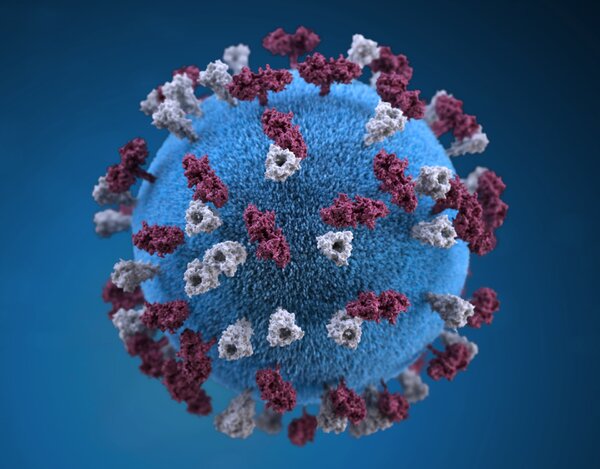
Die WHO und 25 Staats- und Regierungschefs der Welt verständigten sich Ende März 2021 darauf, dass ein globaler Pandemievertrag notwendig geworden ist. Zum einen, um zukünftige Pandemien zu verhindern, zum anderen um diese effektiver und gerechter zu bekämpfen. Eines der Ziele eines solchen Vertrages sollte es sein, eine tiefergehende Prävention als bisher zu betreiben, fordern Wissenschaftler*innen: Anstatt sich darauf zu konzentrieren, dass Krankheitsausbrüche sich nicht weiterverbreiten, wie in den internationalen Gesundheitsvorschriften (IHRs) festgeschrieben, muss vielmehr der Ausbruch von Krankheiten verhindert werden. Insbesondere müssten Schlüsselfaktoren der Umweltzerstörung, Erkenntnisse aus der One-Health-Perspektive (z.B. das Verbot des Handels mit Wildtieren), zur Verringerung des Ausbruchs zoonotischer Erkrankungen, Eingang in umfassendere Präventionsmassnahmen erhalten. Ein globaler Pandemievertrag könnte u.a. die Kohärenz zwischen ratifizierten Umweltverträgen und den internationalen Gesundheitsvorschriften stärken und dazu beitragen, diese rechtlichen Regelungen durchsetzbarer und effektiver zu machen.
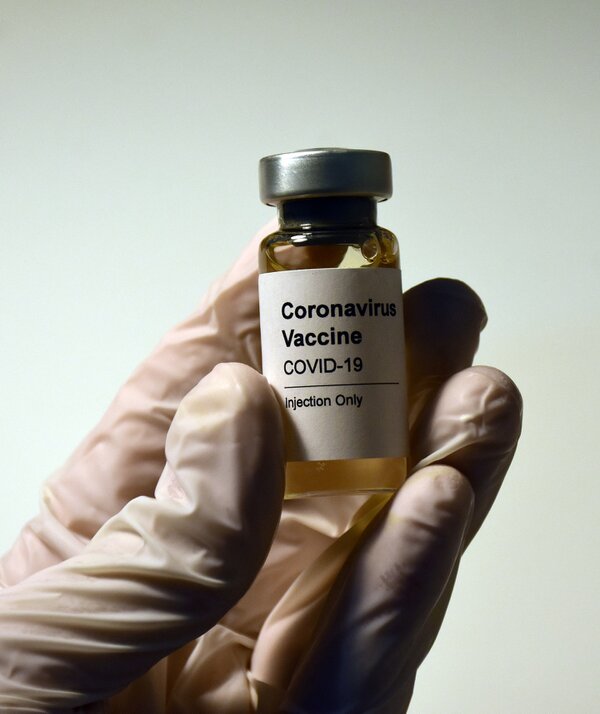
This collection of articles launched at the Prince Mahidol Awards Conference (PMAC) in January 2021
"The covid-19 pandemic is a stark reminder of the importance of equity and solidarity. As we move forward, it is vital that we explore the drivers of the pandemic, learn from the global response, and become more prepared for the future. This collection of articles analyses some of the major global issues arising from the pandemic, including the political economy of the response, the role of international institutions, overwhelmed health systems, the role of social determinants, the value of indices of preparedness, and the need for all countries to act together to reduce inequality, protect health, and organise a more effective response to climate change."
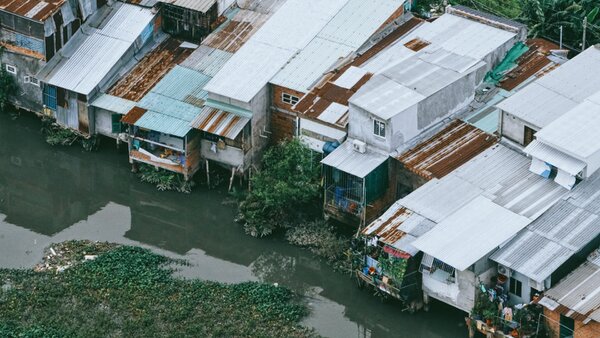
Neuer Oxfam Bericht deckt auf, in welchem Ausmass die COVID-19 Pandemie die soziale Ungleichheit verschärft
Es herrscht tiefe Besorgnis darüber, dass die Pandemie die Ungleichheit auf der ganzen Welt in die Höhe treiben wird, mit sehr schädlichen Auswirkungen. Eigentlich hatte die Weltbank erwartet, dass 2020 die Zahl der extrem Armen um 31 Millionen sinken wird. Stattdessen sind geschätzte 88 Millionen Menschen zusätzlich unter die Einkommensgrenze von 1,90 Dollar pro Tag gerutscht. Ihre Gesamtzahl ist nun wieder so hoch wie 2015 und wie der aktuelle Oxfam Bericht darlegt, könnte die Zahl, der in Armut lebenden Menschen erst wieder in einem Jahrzehnt das Niveau vor der Pandemie erreichen. Die Pandemie hat aufgezeigt, dass die meisten Menschen auf der Erde nur einen Monatslohn vom Elend entfernt leben. Im Gegensatz dazu, ist das Vermögen der Reichsten, trotz der Pandemie weltweit um mehrere Milliarden angestiegen. Nach kurzem Einbruch hat die beispiellose Unterstützung der Regierungen vieler Länder den Aktienmarkt und damit das Vermögen der Milliardäre in die Höhe schnellen lassen, während die Realwirtschaft eine tiefe Rezession erlebt.

Führende Gesundheitsexpert*innen warnen, dass ohne leistungsfähige Gesundheitssysteme die gegenwärtige Pandemie nicht zu bewältigen ist. Sie kritisieren das kurzsichtige Handeln von Ländern mit hohem Einkommen, die mit der globalen Initiative „ACT-A“ vor allem in die Beschaffung von Impfstoffen, aber kaum in Gesundheitssysteme investieren. Der ACT-A (Access to COVID-19 Tools Accelerator), eine im April 2020 unter anderem von der Weltgesundheitsorganisation (WHO), der Europäischen Kommission und der französischen Regierung ins Leben gerufene Initiative – angetreten zur Beschleunigung der Entwicklung und gerechten Verteilung von COVID-19-Tests und –Impfstoffen – hat es versäumt, schwache Gesundheitssysteme zu unterstützen. Es fehlen Milliarden von Dollar, um in Schutzkleidung, Sauerstoff, medizinisches Personal oder in Kühlketten, von einkommensschwachen Ländern zu investieren.
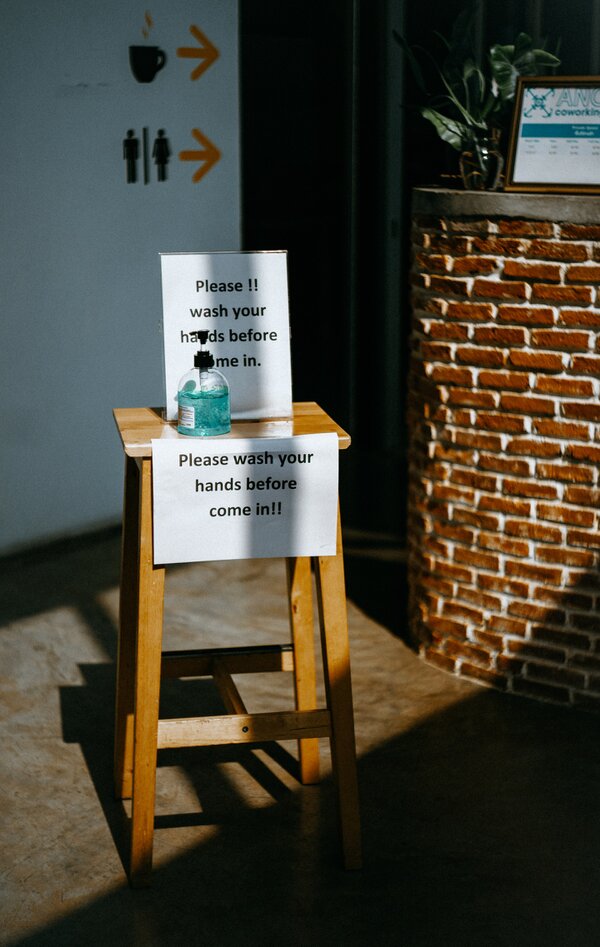
Eine Analyse von Ilona Kickbusch
COVID-19 ist global, doch die Antwort auf diese globale Bedrohung ist weitgehend national. Die globale Antwort zur Finanzierung der Pandemie beschränkt sich auf Beiträge aus der Entwicklungshilfe (ODA) u. ä. und ist unzureichend. Trotz grosser Reden hat sich die Gruppe der 20 am stärksten industrialisierten Nationen (G20) bei ihrem jüngsten Gipfel nicht an das Ziel herangewagt, bis Ende 2021 zwei Milliarden Dosen COVID-19 Impfstoffe zu verteilen. Die G20 hat versagt, darüber zu diskutieren, wie gemeinsame Güter definiert und finanziert werden sollen. Selbst angesichts der grössten Pandemie seit 100 Jahren gibt es keinen politischen Willen, sich mit der Finanzierung globaler Gemeinschaftsgüter für die Gesundheit zu befassen. Diese politische Vernachlässigung hat auch dazu geführt, dass wichtige Institutionen wie die WHO unterfinanziert sind. Ein Paradigmenwechsel in der globalen Gesundheitsfinanzierung ist notwendig, fordert Ilona Kickbusch.
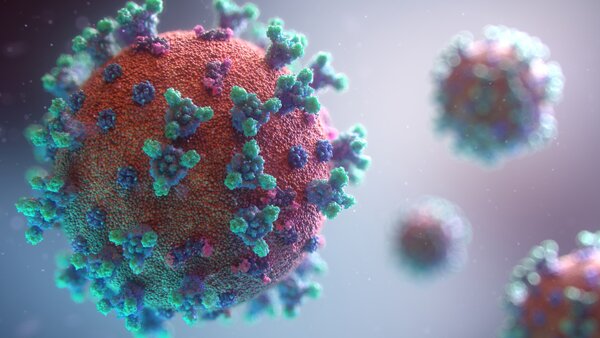
Blog by Kristof Decoster
Kristof Decoster´s personal blog "My assessmentof the current corona moment and how global health, so far,fails toseize it. See also the intro of this week. Our “global health financing toolbox”still seems, by and large, stuck in the neoliberal/Third Way MDG era. Anybody who believes that will suffice to deal with the challenges of the 21stcentury (not the leastthe climate emergency & widespread populism) can raise his/her hands. PS: that would include the fansof ‘Team Europe’." (Photo: Trinity Care Foundation/flickr, CC BY-NC-ND 2.0)
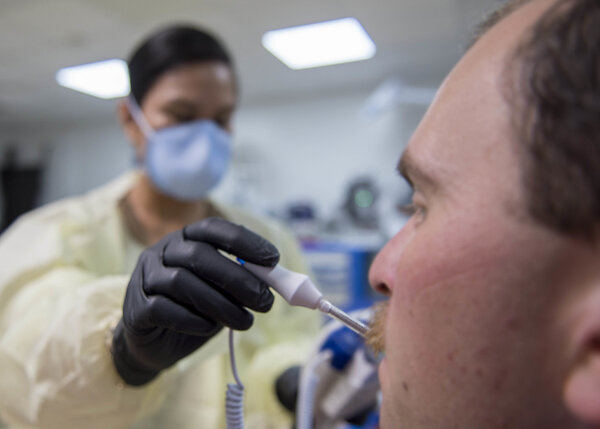
Joint blog
UHC2030 "The COVID-19 pandemic has swept across the world, reshaping the global health landscape and sparking an economic crisis deeper than anything seen since the great depression. The pandemic has plainly shown the interdependence of health security and economic security. While health security - reducing the vulnerability of societies to pandemics like COVID-19 - is a distinct goal, it is interlinked with efforts to move towards universal health coverage (UHC). Neither UHC nor health security can be achieved without the foundation of common goods for health, produced through strong and resilient health systems." (Photo: USAFRICOM/flickr, CC BY 2.0)
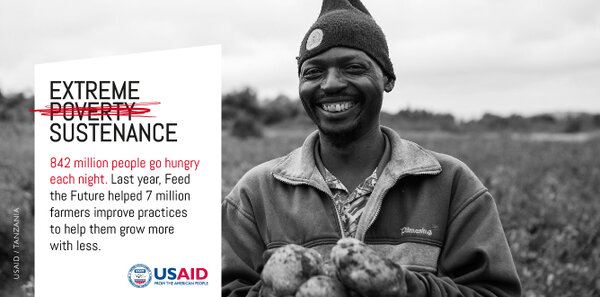
British Medical Journal (bmj) "Principles and methods drawn from decades of work showing that lower socioeconomic status is associated with poorer health should guide efforts to monitor and mitigate the impact of the covid-19 pandemic argue Geoffrey Anderson and colleagues." (Photo: USAID U.S. Agency for International Development/flickr, CC BY-NC-ND 2.0)
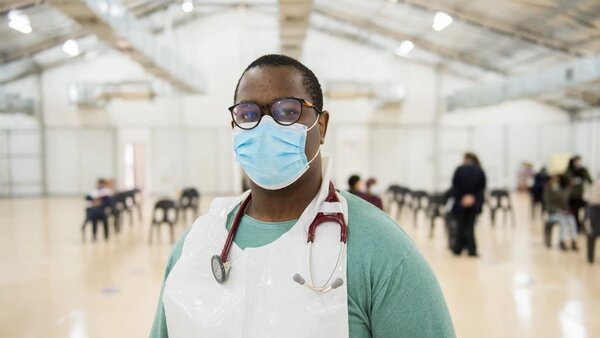
Medienmitteilung
Dreizehn afrikanische Länder und ein internationales Netzwerk von Forschungsinstitutionen, einschliesslich des Schweizerischen Tropen- und Public Health-Instituts (Swiss TPH), lancieren die grösste klinische COVID-19-Studie in Afrika an ambulanten Patienten mit leichtem bis mittelschwerem Krankheitsverlauf. Die klinische Studie ANTICOV wird erforschen, welche Behandlungen sich eignen, um leichte und mittelschwere COVID-19-Fälle frühzeitig zu behandeln und zu verhindern, dass sehr viele Menschen zur gleichen Zeit in Krankenhäuser aufgenommen werden müssen.
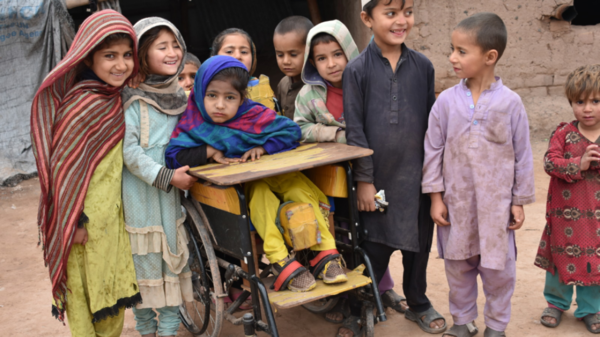
Handicap International Die Pandemie, mit der wir konfrontiert sind, hat unsere Organisation gezwungen, 131 ihrer Projekte anzupassen. Unsere Aktion konzentriert sich derzeit hauptsächlich auf die Sensibilisierung, die Verteilung von Hygienepaketen, Inklusion, psychosoziale Unterstützung und die Verteilung von Lebensmitteln. Erfahren Sie alles darüber in dieser neuen Ausgabe!
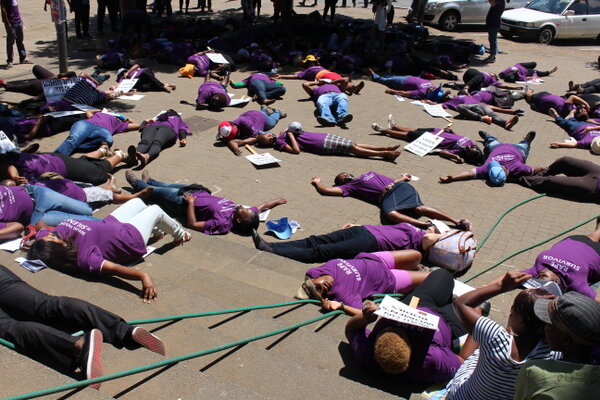
Med in Switzerland #23 September 2020
MMS Gemessen an der Einwohnerzahl, zählte Südafrika schon vor der Corona-Pandemie weltweit die meisten Opfer von sexueller und häuslicher Gewalt. Die strengen Lockdown-Massnahmen der letzten Monate haben die Ausbreitung des Virus zwar eindämmen können, jedoch die Zahl der Fälle von geschlechtsspezifischer Gewalt in die Höhe schnellen lassen. Ausgerechnet in einer Zeit, in der die ohnehin hohe Zahl der Gewaltopfer nochmals ansteigt, ist die Arbeit der HelferInnen massiv beeinträchtigt. Am Beispiel der Arbeit von Lifeline, südafrikanische Partnerorganisation von terre des hommes schweiz, zeigt sich, wie gross der psychische Druck und die konkreten Hindernisse für die Hilfesuchenden als auch Helfenden sind. Ein Bericht von Hafid Derbal und Tayson Mudarikiri, terre des hommes schweiz. (Foto: Wichtige und öffentlichkeitswirksame Proteste wie hier 2018 sind heute nicht mehr möglich / © terre des hommes schweiz)
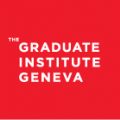
Politics of the Coronavirus Pandemic
Graduate Institute Geneva - Global Health Centre "Like previous pandemics, Covid-19 has led to a broad range of human rights violations around the world, from censorship and the silencing of criticism to the excessive use of police force. Minority groups and migrants have found themselves particularly vulnerable to abuse, as well as to Covid-19-related stigma and violence. By Sara (Meg) Davis Special Advisor on Strategy and Partnerships at the Global Health Centre. The Graduate Institute, Geneva." (Photo: Logo GIG)
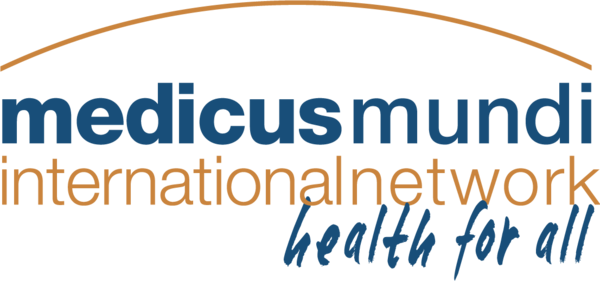
73rd World Health Assembly devoted to the COVID-19 pandemic response
Medicus Mundi International (MMI) "In these difficult times, we welcome the fact that a World Health Assembly takes place. We also welcome the intense negotiation process on the COVID-19 resolution as a strong sign that Member States still want WHO to direct and coordinate the global response to COVID-19 and other international health problems, with the World Health Assembly as its decision-making body."
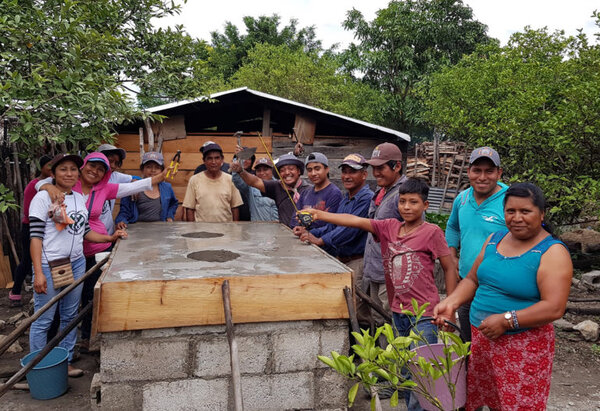
Analyse - Bulletin N°175 CSSR
La Centrale Sanitaire Suisse Romande (CSSR) Il n’y a pas encore de catastrophe due au COVID-19 en Amérique latine, mis à part en Equateur. Dans tous les pays avec lesquels nous travaillons, il y a confinement, constatation de la fragilité des systèmes de santé, manque de matériel pour contenir l’épidémie. Les projets de la CSSR vont continuer, mais aussi ralentir. C’est le cas au Nicaragua, au Guatemala, au Mexique. (Photo: CSSR)
Il n’y a pas encore de catastrophe due au COVID-19 en Amérique latine, mis à part en Equateur. Dans tous les pays avec lesquels nous travaillons, il y a confinement, constatation de la fragilité des systèmes de santé, manque de matériel pour contenir l’épidémie. Les projets de la CSSR vont continuer, mais aussi ralentir. C’est le cas au Nicaragua, au Guatemala, au Mexique. (Photo: CSSR)
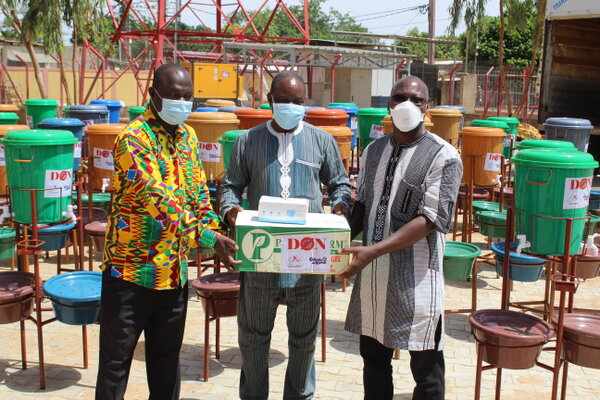
Mit Video
Enfants du Monde Am 9. März 2020 gab es in Burkina Faso die ersten Fälle von COVID-19. Mit 766 bestätigten Fällen und 52 Todesfällen (Stand am 13. Mai 2020) ist das Land heute eines der am schlimmsten betroffenen in Afrika. Neun der 13 Gesundheitsregionen des Landes sind von der Epidemie betroffen. Um das Gesundheitsministerium von Burkina Faso im Kampf gegen COVID-19 zu unterstützen, stellt Enfants du Monde in Zusammenarbeit mit unserem lokalen Partner IPC/BF (Initiative Privée et Communautaire pour la santé et la riposte au VIH/Sida au Burkina Faso) und mit finanzieller Unterstützung der Schweizer Entwicklungszusammenarbeit und ihrer Geldgeber, Schutzausrüstungen für Gesundheitsdienstleister zur Verfügung und informiert die Bevölkerung. (Foto: Enfants du Monde)
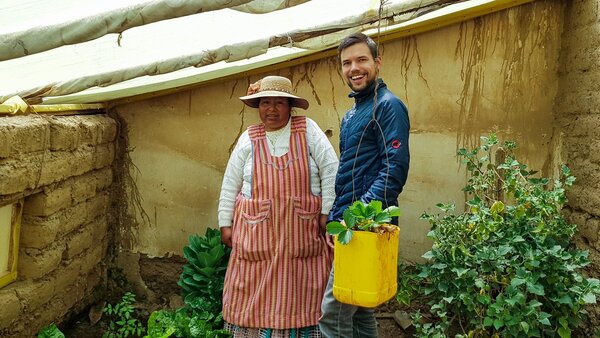
Comundo Comment s'en sortir dans une grande ville comme El Alto / La Paz durant la crise du Coronavirus ? Économie informelle au point mort, violence domestique, système de santé défaillant : Jérôme Gyger relate la situation sur place et explique son projet d'agriculture urbaine, qui donne une partie de la solution. (Photo: Avec Doña Bartolina Ticona dans sa petite serre de production biologique à El Alto/ © Comundo)
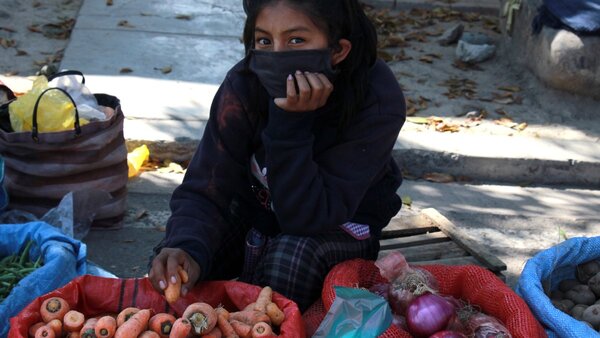
Comundo Überforderung, fehlende Betreuung und steigende Gewalt dominieren Städte wie Cochabamba in Bolivien in Zeiten der Coronakrise. Dabei geht vergessen: Kinder sind nicht nur Opfer, sondern besitzen auch Potential zur Krisenbewältigung in Familie und Gesellschaft. (Foto: Ein Mädchen, das an einem Markt in der Nähe von Quillacolo (ausserhalb Cochabamba) trotz Quarantäne versucht ihren Lebensunterhalt zu verdienen. | Lizeth Salazar Bustos/AVE)
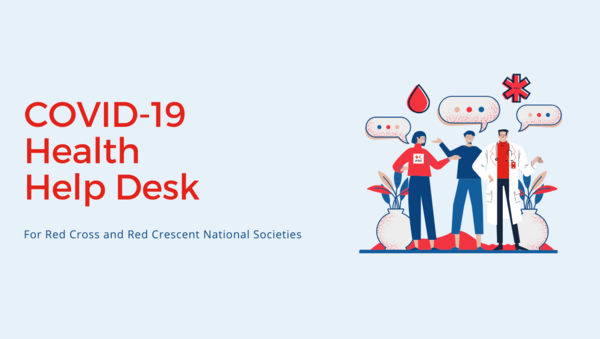
Global Disaster Preparedness Center (GDPC) "National Societies' and volunteers' roles will change through the progression of the COVID-19 pandemic in their respective countries and communities, based on which activities to support public health, clinical and health systems activities are likely to be most impactful in their context and with their outbreak dynamics. This Health Help Desk Website provided by the International Federation of Red Cross and Red Crescent Societies (IFRC) offers three functions: 1) Huge resource library of all available health documents, guidelines and research. Scroll down the page and click on the bold themes, and further information will open. 2) Pose any question you have to the helpdesk. They try to answer asap 3) Any questions and related answers are available on the Q&A site. Please check the Q&A section, before you pose a new question to the help desk." (Photo: © GDPC)
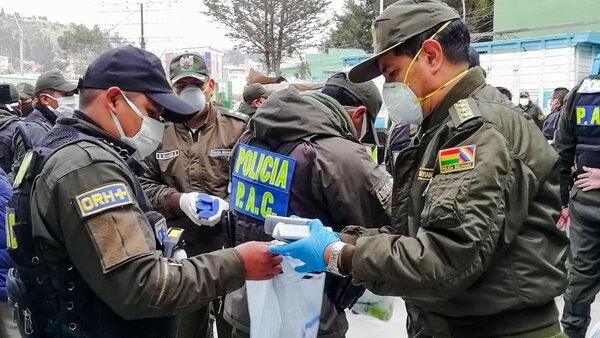
Comundo Viele leiden aktuell unter den weltweiten Quarantäne-Massnahmen. Doch es gibt Menschen, die zu ihrem Eigenschutz zuhause bleiben möchten, dies aber nicht dürfen. Die Psychotherapeutin und Comundo-Fachperson Bitia Vargas unterstützt staatliches Sicherheits- und Gesundheitspersonal in der Krise und gewährt uns einen Blick hinter die Kulissen der bolivianischen Polizei. (Im Bild die bolivianische Polizei mit einer Einheit für Bio-Sicherheit. ©ABI )

rts.ch "Tous les vendredis, "CQFD" reçoit un homme ou une femme de science pour parler de son travail et de ses recherches. Aujourd'hui, Sarah Dirren a invité Vinh-Kim Nguyen, médecin urgentiste, professeur dʹanthropologie et de sociologie de la santé et co-directeur du Centre de santé globale au Graduate Institute de Genève (IHEID), professeur au Département de médecine sociale et préventive de lʹUniversité de Montréal et Research Fellow au Max-Planck Institute for Social Anthropology, à Halle, en Allemagne. - Une heure pour faire connaissance avec ce spécialiste dont les activités se partagent entre action sur le terrain et analyse plus globale des crises sanitaires, du VIH au Covid-19, en passant par Ebola." (Photo: IHEID)

Graduate Institute Geneva - Global Health Centre "Gian Luca Burci and Jennifer Hasselgard-Rowe examine the rights-related measures that have been adopted by the Swiss Confederation and the Cantons to respond to the current Covid-19 crisis. The main regulatory avenue that Switzerland’s Federal Council has used in its response to the COVID-19 pandemic has been to issue federal orders effective across the entire Swiss territory." (Photo: GIG_GHC)

Schweiz appelliert gemeinsam mit 58 Ländern gegen Gewalt an Frauen und Mädchen
Eidgenössisches Departement für auswärtige Angelegenheiten (EDA) "Seit Beginn der COVID-19-Pandemie ist in gewissen Ländern aufgrund der Lockdown-Massnahmen und des eingeschränkten Zugangs zu Hilfsangeboten ein erhöhtes Risiko von häuslicher Gewalt zu beobachten. Vor diesem Hintergrund hat Bundesrat Ignazio Cassis zusammen mit Vertreterinnen und Vertretern von 58 anderen Ländern eine gemeinsame Erklärung zur Stärkung des Schutzes von Frauen und Mädchen in Zeiten von COVID-19 unterzeichnet. Die gemeinsame Erklärung ruft die internationale Gemeinschaft auf, sich für den Schutz der Gesundheit und der körperlichen Integrität von Frauen einzusetzen und sicherzustellen, dass die Frauen an allen Entscheidungsprozessen im Zusammenhang mit der Pandemie umfassend teilhaben. Sie appelliert ausserdem an alle Akteure (inkl. Privatsektor), ihre Anstrengungen zu vereinen, um in besonders betroffenen Ländern Soforthilfe zu leisten, und die globale Verpflichtung für einen universellen Zugang zur Gesundheitsversorgung vollumfänglich wahrzunehmen."
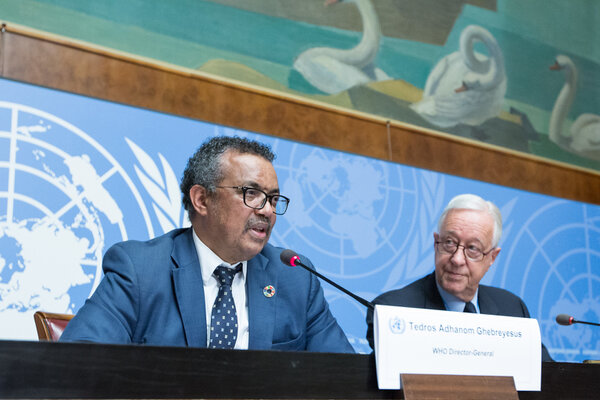
WHO Interim guidance
World Health Organisation (WHO) "When health systems are overwhelmed, both direct mortality from an outbreak and indirect mortality from vaccine-preventable and treatable conditions increase dramatically. Countries will need to make difficult decisions to balance the demands of responding directly to COVID-19, while simultaneously engaging in strategic planning and coordinated action to maintain essential health service delivery, mitigating the risk of system collapse. This document expands on the content of the Operational planning guidelines to support country preparedness and response, and provides guidance on a set of targeted immediate actions that countries should consider at national, regional, and local level to reorganize and maintain access to high-quality essential health services for all." (Photo: UN Geneva/flickr, CC BY-NC-ND 2.0)
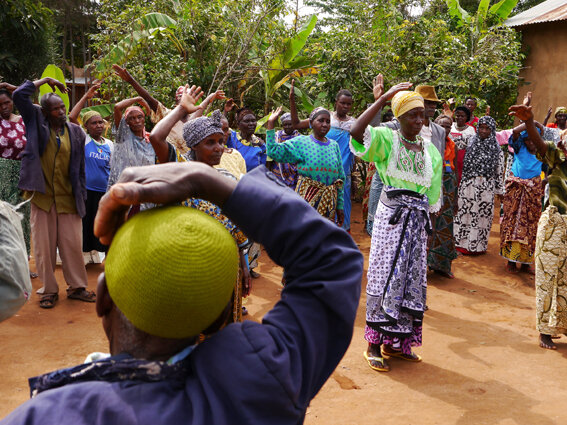
Help Age International "This document provides guidance and advice for care homes about coronavirus, or COVID-19. While older people in care homes are particularly vulnerable to COVID-19, there are steps that can be taken to reduce their risk, and to ensure they are well cared for and supported. Care home staff must also be looked after and must be equipped with information to protect themselves as well as those in their care. The document includes information on personal behaviour, action to take inside the care home, interaction with the outside environment, management responsibilities, governance, and what to do if someone has COVID-19." (Photo: Katja Busch / Kwa Wazee)

World Health Organisation (WHO) "All countries should increase their level of preparedness, alert and response to identify, manage and care for new cases of COVID-19. Countries should prepare to respond to different public health scenarios, recognizing that there is no one-size-fits-all approach to managing cases and outbreaks of COVID-19. Each country should assess its risk and rapidly implement the necessary measures at the appropriate scale to reduce both COVID-19 transmission and economic, public and social impacts." (Photo: UN Geneva/flickr, CC BY-NC-ND 2.0)

Interim guidance
World Health Organisation (WHO) "This rapid advice has been updated with the latest information and is intended to guide public health and infection prevention and control (IPC) professionals, health care managers and health care workers (HCWs) when addressing issues related to home care for patients with suspected COVID-19 who present with mild symptoms and when managing their contacts." (Photo: UN Geneva/flickr, CC BY-NC-ND 2.0)
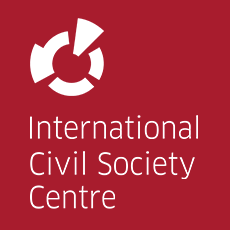
International Civil Society Centre "This page is part of a series of COVID-19 resource pages that we are creating to help civil society actors. On this page, you will find links to readings, podcasts and videos related to the latest COVID-19 news and analysis. If you have a recommendation or a suggestion, let us know."
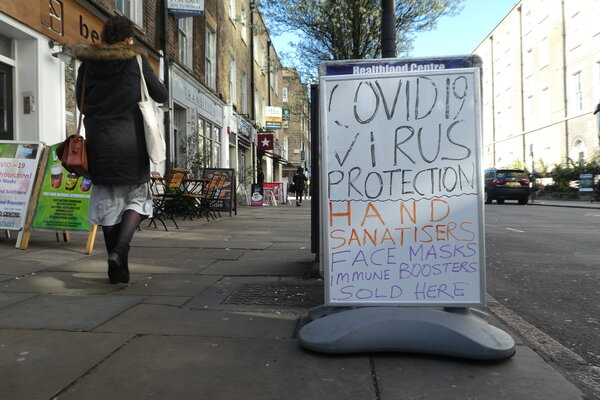
The Lancet "To assist health workers and researchers working under challenging conditions to bring this outbreak to a close, The Lancet has created a Coronavirus Resource Centre. This resource brings together new 2019 novel coronavirus disease (COVID-19) content from across The Lancet journals as it is published." (Photo: Coronavirus/duncan c/flickr, CC BY-NC 2.0)

Medicus Mundi International (MMI) Basel/Geneva, March 2020. The outbreak of the “coronavirus” (covid19) all around the world is not only feeding headlines and news. It influences very concretely the lives of many of us. But it also raises questions on health systems, health policies, access to health, health governance or international cooperation. (Photo: MMI)

People´s Health Movement This page is a collection of statements and articles that have been prepared by PHM, its regional and country circles and also like minded civil society organisations on the issues around the ongoing pandemic of coronavirus disease 2019 (COVID-19).